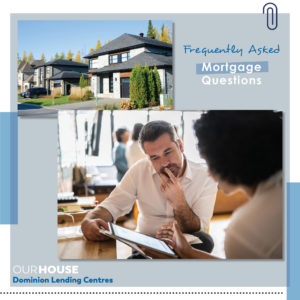 Mortgage Pre-Approval vs. Pre-Qualification.
Mortgage Pre-Approval vs. Pre-Qualification.
When it comes to getting a mortgage, there are a few things you can do in advance to make the mortgage process easier!
getting pre-qualified
The purpose of mortgage pre-qualification is to help you get a general idea of what you can afford when shopping for your new home.
Pre-qualification will take your own assessment of your financial status and allow you to come up with a budget for a home, as well as what you can afford for monthly payments.
Download the My Mortgage Toolbox app available on the iStore or Google Play to get pre-qualified today in under 60 seconds! Plus, you can get an idea of your monthly mortgage payments and compare various payment schedules.
getting pre-approved
While getting pre-qualified can give you a ballpark estimate on what you can afford, pre-approval means that a lender has stated (in writing) that you do qualify for a mortgage and what amount, based on submitted documentation of your current income and credit history.
A pre-approval usually specifies a term, interest rate and mortgage amount and is typically valid for a brief period of time, assuming various conditions are met.
There are a few benefits to pre-approval including:
- It confirms the maximum amount you can afford to spend
- It can secure you an interest rate for 90-120 while you shop for your new home
- It lets the seller know that securing financing should not be an issue. This is extremely important for competitive markets where lots of offers may be coming in.
Keep in mind, once you get your pre-approval, you will want to make sure not to jeopardize it. Until your mortgage application and sale is completed, be sure you don’t quit or change jobs, buy a new car or trade up, transfer large sums of money between bank accounts, leave your bills unpaid or open up new credit cards. You do not want your financial or employment details to change at all until you have closed on the new mortgage.
Reach out to Jennifer Koop, DLC mortgage expert to get started today! 705-349-0502
Published by DLC Marketing Team

 Frequently (and not so frequently!) Asked Mortgage Questions
Frequently (and not so frequently!) Asked Mortgage Questions 5 Steps to Getting a Mortgage
5 Steps to Getting a Mortgage Make Your Mortgage Work for You
Make Your Mortgage Work for You What is an Uninsurable Mortgage?
What is an Uninsurable Mortgage? Selling Your Home in the Spring
Selling Your Home in the Spring 4 Financial Myths
4 Financial Myths 10 “Must Know” Credit Score Facts
10 “Must Know” Credit Score Facts Second Mortgages: What You Need to Know
Second Mortgages: What You Need to Know Selling Your Home in Winter
Selling Your Home in Winter